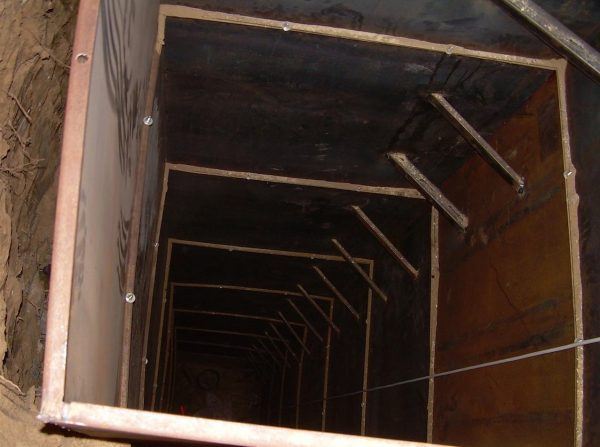As Israel, Saudi Arabia, the U.S. and their allies keep a wary eye on Hezbollah and Iranian activity in Lebanon, they must not forget the influence of North Korea. There is a long history of cooperation among North Korea, Iran, Syria, Hezbollah, and Hamas. North Korea has been exporting rockets, missiles, explosives and small arms to Iran and Syria since the 1980s, in addition to providing training in unconventional warfare. But their assistance has been stepped up in recent years, and expanded to include non-state actors such as Hamas and Hezbollah.
According to a 2013 U.S. district court ruling, North Korea and Iran were culpable in the 2006 Hezbollah rocket attacks that killed and wounded civilians in Israel. Iran supplied the financing, the court ruled, and North Korea supplied rocket and missile parts for assembly in Iran and onward shipping to Syria and Lebanon for Hezbollah’s use. North Korea also customized the rockets to allow Hezbollah fighters to fire the rockets quickly and run away, in an effort to avoid retaliation counterstrikes.
Rockets, Training – and Tunnels
The cooperation between Hezbollah and North Korea pre-dated the 2006 war, however, stretching back decades. Judge Royce Lamberth said that “Hezbollah members began traveling to North Korea for specialist instruction as early as the late 1980s. Hezbollah General-Secretary Hassan Nasrallah himself visited North Korea for training purposes during this time.” Mustafa Badreddine, Hezbollah’s counter-espionage chief, and Ibrahim Akil, head of Hezbollah’s security and intelligence service, also were trained in North Korea.
North Korea has supplied Hezbollah with advanced tunnel-building technology.
North Korea has supplied Hezbollah and its Sunni counterpart in Gaza, Hamas, with advanced tunnel-building technology that has proven to be a deadly component of their anti-Israel tactics and strategy. North Korea has been known for decades for its tunneling ability. In the 1970s, the North was caught several times tunneling under the DMZ into South Korean territory. To date, four tunnels have been discovered and exposed, some capable of shuttling 30,000 soldiers per hour under the DMZ into South Korean territory. South Korean and allied sources expect there are many more tunnels as yet undiscovered, perhaps more than 20.
Hezbollah used the tunnels to great advantage during its 2006 war with Israel, as did the Palestinian group Hamas. Hamas famously used one of its tunnels to pop out of the ground to ambush an Israeli Defense Force (IDF) patrol , killing several IDF soldiers and kidnapping Shalit Gilad. In 2014, IDF teams discovered 32 tunnels from Gaza into Israeli territory, some ending under schools and hospitals, where explosive charges were found.

Hezbollah has built similar networks of tunnels in South Lebanon, with assistance from North Korea. In the 2006 court case referenced above, Judge Lamberth found that North Korea had given “… critical assistance in building an extensive and sophisticated fortified tunnel network in the area south of the Litani River and bordering Israel. … The configuration and parameters of the tunnel system closely resemble the layout of similar systems in the demilitarized zone separating North and South Korea.”
Hezbollah’s Assymmetrical Approach to the Laws of War
The Washington Institute for Near East Policy (WINEP), hosted a discussion in October on preparing for the next war with Hezbollah, led by three officials from the High Level Military Group (HLMG). According to its website, HLMG “consists of military leaders and officials from NATO and other democratic countries exploring the challenges of 21 Century warfare.”
The group was formed in early 2015 for the purpose of addressing how Western nations, who follow the basic rules of war, can manage a conflict with nations and non-state actors “who disregard the Law of Armed Conflict (LOAC) but exploit our own nations’ adherence to LOAC for their gain.”
… the group conducts operations without regard to the laws of war despite resembling a conventional military.
The HLMG officials warned that “Hezbollah’s basic strategic concept consists of three related parts: terrorist activity, traditional military activity, and political activity. Among other things, this interplay means that the group conducts operations without regard to the laws of war despite resembling a conventional military. For example, it has shown no compunction about using civilians as cover for its personnel, purposefully manipulating noncombatants into becoming targets. Over time, the group has transformed most Shia villages in southern Lebanon into military assets that provide infrastructure, recruitment, storage, and access to underground tunnels designed for warfare.”
The Trump Administration just designated North Korea as a state sponsor of terrorism, a move that was long overdue. One of the many reasons behind the decision is the long term support they have given to Hezbollah: small arms, technology, training, rockets, missiles – and tunnels. As tensions mount and actors in both regions brace for a potential armed conflict, it is important to guard against that connection.
















